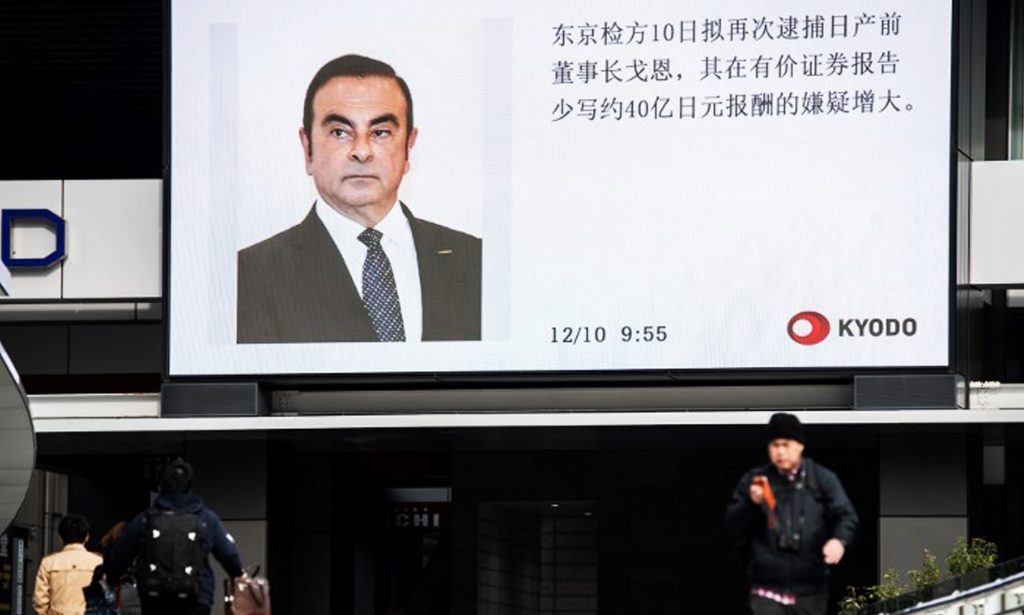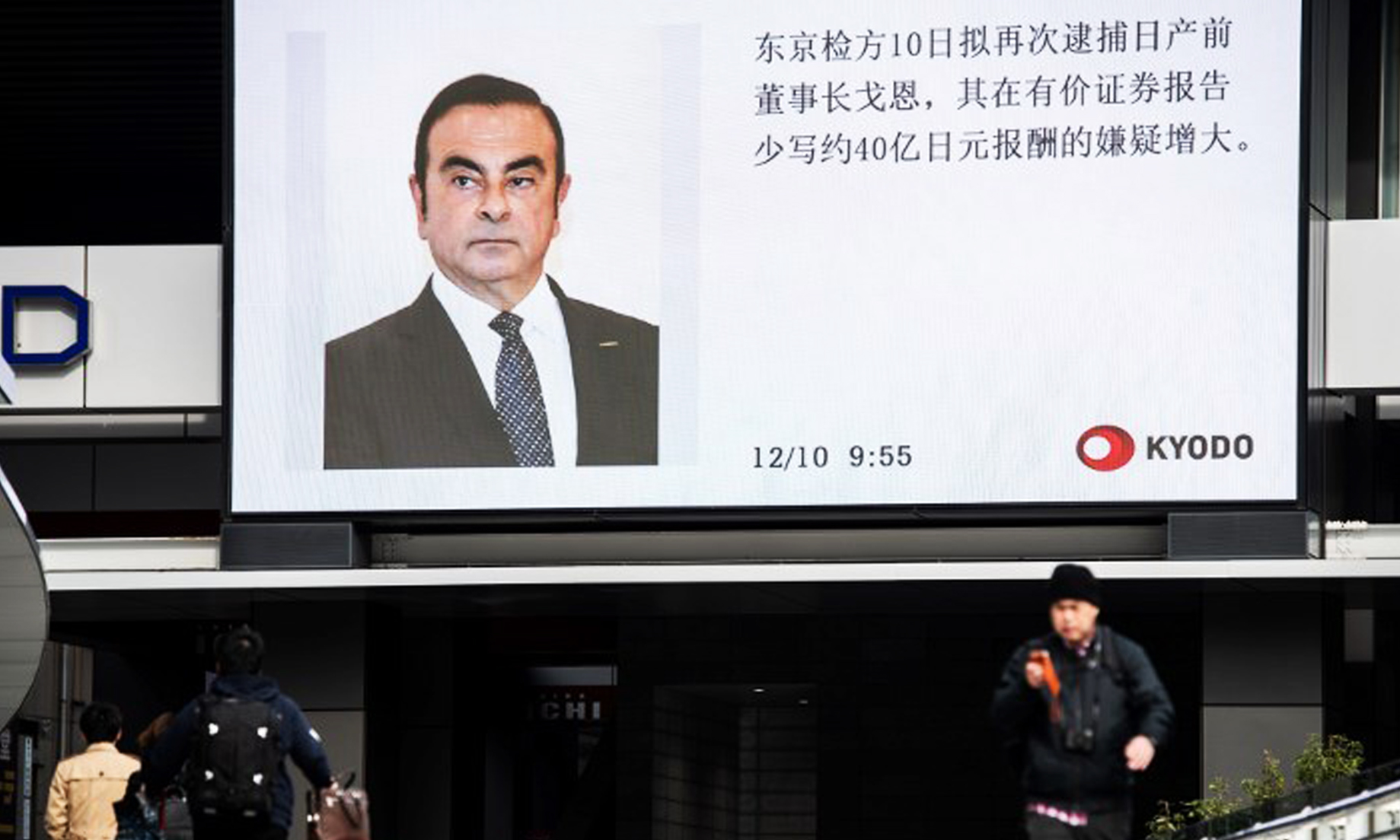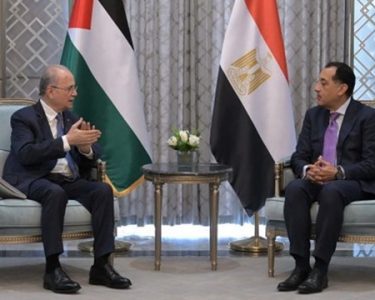
Pedestrians walk past a television screen showing a news programme featuring former Nissan chief Carlos Ghosn in Tokyo on on December 10, 2018. Photo courtesy of sabcnews
TOKYO, April 4 (NNN-KYODO) – Former Nissan Motor Co. Chairman Carlos Ghosn was rearrested Thursday over a new allegation that he was responsible for a $5 million loss made by the automaker, the fourth time he has been arrested in Japan.
The new arrest warrant, served for an allegation of aggravated breach of trust over a payment made to a distributor in Oman, marks another turn for the once-feted auto tycoon, who was preparing to defend his innocence at trial.
He was first arrested in November and taken into detention. In Japan, it is unusual for a defendant who has been released on bail to be rearrested.

A vehicle believed to be carrying Ghosn enters the Tokyo Detention House. Photo courtesy of Kyodo
According to a source, Ghosn, who had been released on March 6, was taken back to the Tokyo Detention House in a vehicle from the Tokyo District Public Prosecutors Office that had arrived at his apartment in Tokyo after 6 a.m.
Officials from the prosecutors’ office covered the vehicle’s windows to thwart the media attempting to capture images of Ghosn. The parking lot of his apartment building was crowded with reporters, photographers and television crews.
The prosecutors served Ghosn with a fourth arrest warrant on suspicion of him having misused Nissan funds paid to the Omani distributor.
“My arrest this morning is outrageous and arbitrary. It is part of another attempt by some individuals at Nissan to silence me by misleading the prosecutors,” Ghosn said in a statement. “I am innocent of the groundless charges and accusations against me.”
The arrest came only a day after the 65-year-old made a surprise announcement on Twitter that he would hold his first press conference since being released on April 11 to “tell the truth about what’s happening.”
With Ghosn in custody over the fresh allegation, it will be impossible for him to speak to the press.
“I don’t understand why Mr. Ghosn will be held in custody. It is extremely inappropriate,” Junichiro Hironaka, one of Ghosn’s lawyers told reporters.
After seeing reports the previous day that he may be rearrested, Ghosn called it “bad news,” according to Hironaka.
Ghosn is now facing a fresh claim that he caused Nissan a loss of $5 million by having Nissan Middle East F.Z.E., the automaker’s subsidiary in the United Arab Emirates, pay the Omani distributor a total of $15 million between December 2015 and July 2018, with part of it transferred to a savings account over which Ghosn had effective possession, according to prosecutors.
The prosecutors have yet to say whether Ghosn has commented on the new allegation.
Sources close to the matter said earlier the fresh allegation is in connection with the use of part of 3.5 billion yen ($31 million) paid to the Omani distributor from 2012 as sales incentives from Nissan’s so-called CEO reserve, a pool of funds Ghosn could use at his discretion at the time.
Some of the funds were allegedly transferred via investment firm Good Faith Investments, run by a senior official of the distributor, to a company represented by Ghosn’s wife. The money may have been spent to purchase a luxury yacht for the use of Ghosn’s family and other items, according to the sources.
A U.S.-based investment company where Ghosn’s son serves as CEO is also suspected of receiving money from Good Faith Investments, the sources said.
Ghosn had been preparing to defend himself against charges that include violating the financial instruments law by underreporting remuneration to regulators over a number of years, as well as aggravated breach of trust in relation to the alleged transfer of private investment losses to Nissan.
During his time in detention, Nissan, Renault SA and Mitsubishi Motors Corp. all removed Ghosn, the three-way partnership’s architect, as chairman and vowed to strengthen the auto group in his absence.
The treatment of Ghosn following his arrest has brought Japan’s criminal justice system under international scrutiny, with practices such as detaining a suspect for a long period and conducting interrogations without a lawyer present likened by critics to “hostage justice.”






